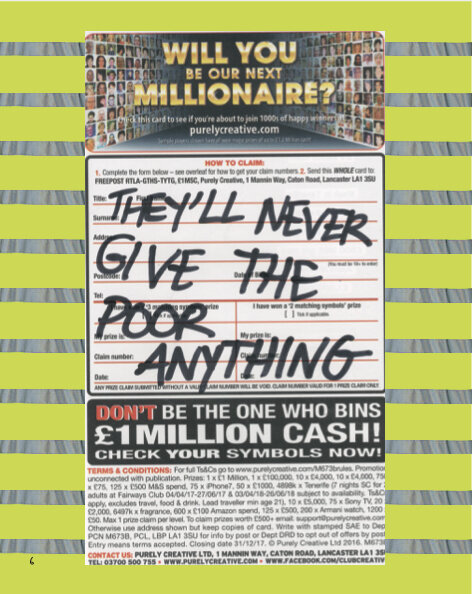Meet GFF Talent, Jasmine Guioua, a graduate from Arts University Bournemouth. Jasmine was inspired by her working class heritage and second generation immigrant roots in the creation of her platform that celebrates and gives a voice to working class creatives. “I wanted to my project to invoke a change in people's minds about what it means to be working-class and foreign in Britain,” she says. Read more below about Jasmine and her work!
What is the most valuable thing you have learnt at university?
Collaborating with other creatives is one of the main things I learnt at University. It's so important to acknowledge other people's talents and how together you can create something super cool just by working together, and everyone always has a fresh perspective on your work. Also, sticking to your guns is also so important and making sure everything you do has a personal touch and reflects your personality as it makes all your work unique.
What was the starting point of inspiration for your final project?
My final project is all about my upbringing, I feel like the idea was bubbling for a few years so when it came to 3rd year I was so passionate about doing my project as it's so close to me. My final project was inspired by my working-class and 2nd generation immigrant roots, I pulled loads of inspiration from Whitechapel, where I grew up and dealing with classism in the industry and society in general as well. I wanted to my project to invoke a change in people's minds about what it means to be working-class and foreign in Britain.
What form does your final project take?
My final project takes form as a publication and online collective for working-class creatives. The publication is all about having a strong voice about classism and social issues and showing an authentic image of working-class youth. I wanted to not only represent the working-classes but also creatives who identify as working-class and their work, showcasing their talent on a platform that's uniquely unapologetic.
How has it evolved from your initial ideas and what have you learnt along the way?
My initial idea was very stripped back compared to where it ended up. I felt like I had a certain idea on what it should look and be like based on what other publications are doing but over time and after experimenting with all sorts of ideas, I started moving away from what other people were doing and created something quite unique within itself. I learnt throughout the way that if it feels good, do it and if it doesn't feel quite right to scrap it. My project was all about invoking emotion so it was important to stick to my guns and be as unapologetic as possible.
What are the messages and themes behind your project that you want people to take away? Do explore any topics like diversity, sustainability or politics in your work?
My whole project is based on the 21st Century Class system and the systematic classism still visible in the creative industry. I want people to read the publication and realise that everyone should deserve the same opportunities no matter where they come from and the working-classes shouldn't be set up to fail before they've even begun. I want people to realise there shouldn't be a class pay gap in this day and age as everyone works equally hard and opportunities in the industry shouldn't just be available to those with money.
What’s an aspect of the fashion industry that you’re passionate about fixing or having a positive impact on?
I think the systematic classism that still exists within the industry is something that I would like my work to have a positive impact on. It's been difficult for me as an Algerian working-class woman from East London to be respected and be given a voice as much as everyone else. Seeming as 60% of the UK workforce are made up of the working-classes, there should be more than 18.2% of them in the creative industry. Money doesn't buy talent or creativity and I think it would be nice if the industry could be more inclusive to people from different socio-economic backgrounds as they can offer a fresh perspective.
What is your plan once you finish your BA?
Hopefully, despite the current climate, move back to London and find a styling or junior Art Director job. I also aim to get my publication published and continue to make issues part-time, releasing 2 a year and continue to use the platform I've created to invoke a change.










